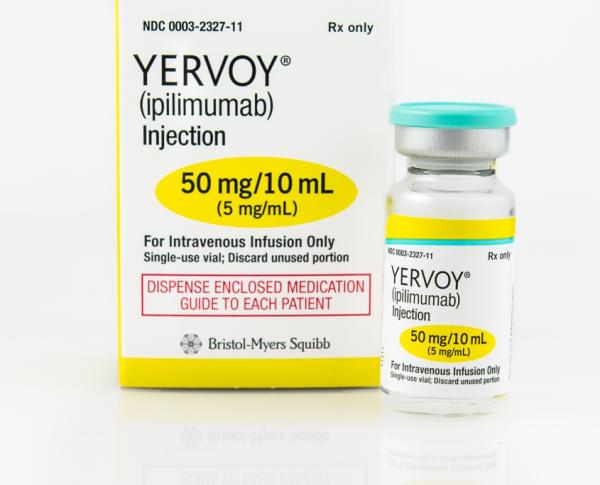Ipilimumab Interactions
There are 670 drugs known to interact with ipilimumab, along with 10 disease interactions. Of the total drug interactions, 24 are major, and 646 are moderate.
- View all 670 medications that may interact with ipilimumab
- View ipilimumab disease interactions (10)
Most frequently checked interactions
View interaction reports for ipilimumab and the medicines listed below.
- Abraxane (paclitaxel protein-bound)
- Abstral (fentanyl)
- Acidophilus Probiotic Blend (lactobacillus acidophilus)
- Activated Charcoal (charcoal)
- Adderall (amphetamine / dextroamphetamine)
- Adriamycin (doxorubicin)
- Aspirin Low Strength (aspirin)
- Bactrim (sulfamethoxazole / trimethoprim)
- Coenzyme Q10 (ubiquinone)
- Colace (docusate)
- Crestor (rosuvastatin)
- DHEA (dehydroepiandrosterone)
- Eliquis (apixaban)
- Glucosamine & Chondroitin with MSM (chondroitin / glucosamine / methylsulfonylmethane)
- Iodides (sodium iodide)
- Keytruda (pembrolizumab)
- Mekinist (trametinib)
- Metoprolol Succinate ER (metoprolol)
- Metoprolol Tartrate (metoprolol)
- Opdivo (nivolumab)
- Paracetamol (acetaminophen)
- Plavix (clopidogrel)
- Reglan (metoclopramide)
- Senna Plus (docusate/senna)
- Trelegy Ellipta (fluticasone / umeclidinium / vilanterol)
- Tylenol (acetaminophen)
- Vitamin B Complex 100 (multivitamin)
- Vitamin B12 (cyanocobalamin)
- Vitamin D3 (cholecalciferol)
- Zyrtec (cetirizine)
Ipilimumab disease interactions
There are 10 disease interactions with ipilimumab which include:
- colitis
- dermatitis
- endocrinopathies
- hepatitis
- HSCT
- immune system disorder
- ocular disease
- hepatic impairment
- organ transplant
- pneumonitis
More about ipilimumab
- ipilimumab consumer information
- Compare alternatives
- Reviews (5)
- Side effects
- Dosage information
- During pregnancy
- Drug class: anti-CTLA-4 monoclonal antibodies
- Breastfeeding
- En español
Related treatment guides
Drug Interaction Classification
| Highly clinically significant. Avoid combinations; the risk of the interaction outweighs the benefit. | |
| Moderately clinically significant. Usually avoid combinations; use it only under special circumstances. | |
| Minimally clinically significant. Minimize risk; assess risk and consider an alternative drug, take steps to circumvent the interaction risk and/or institute a monitoring plan. | |
| No interaction information available. |
See also:
Further information
Always consult your healthcare provider to ensure the information displayed on this page applies to your personal circumstances.


